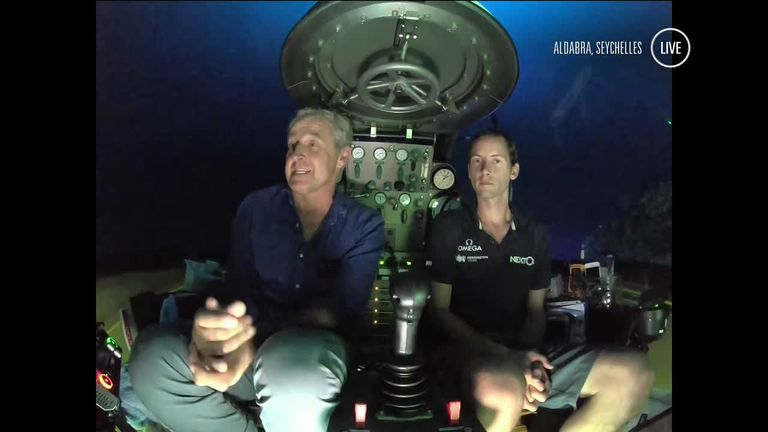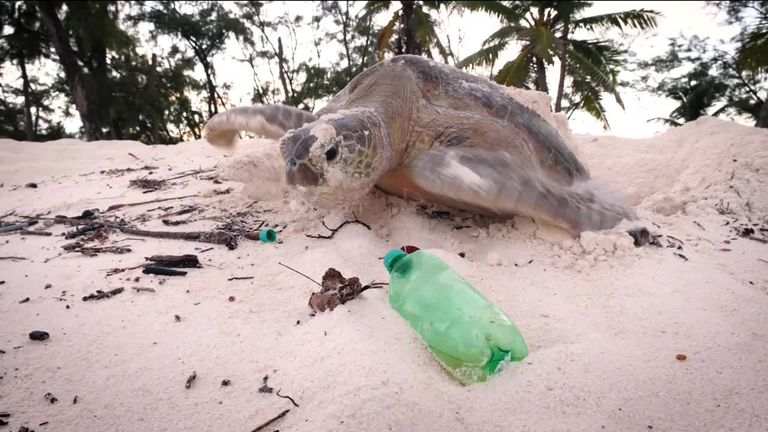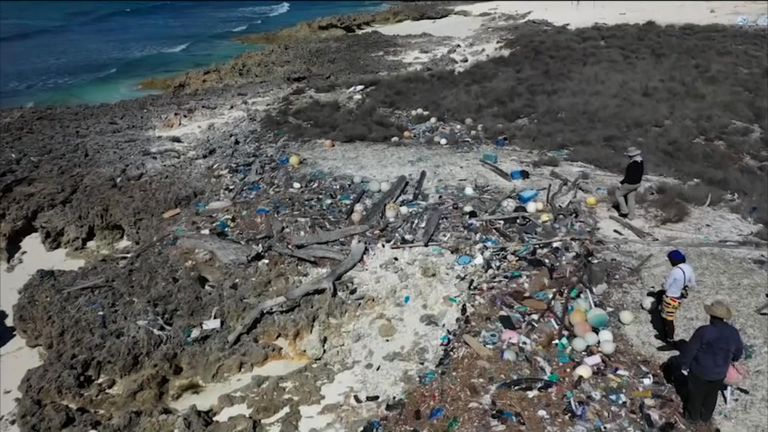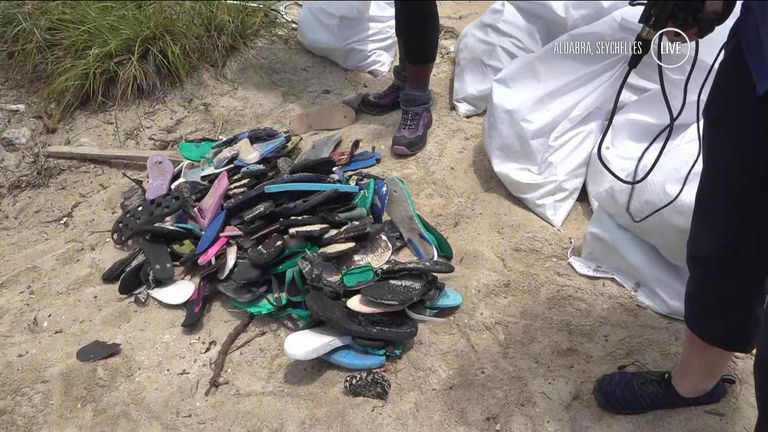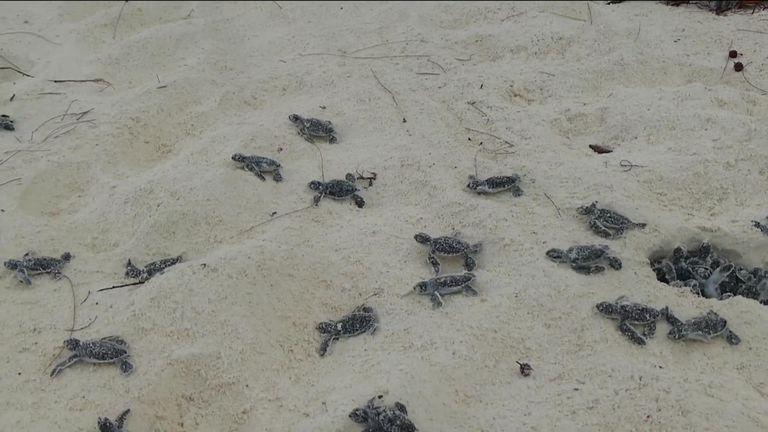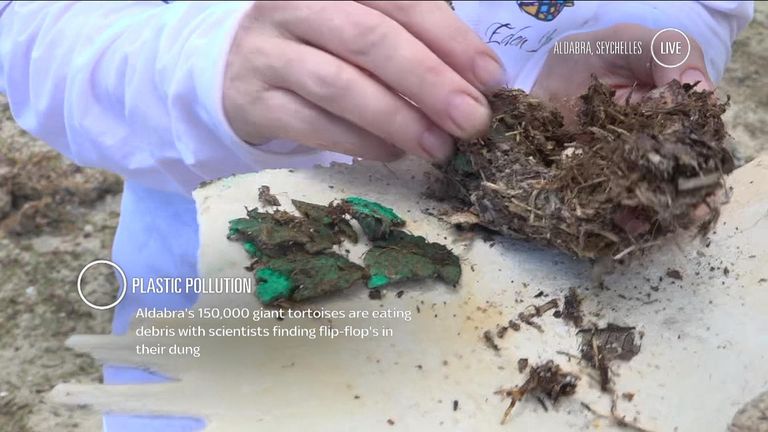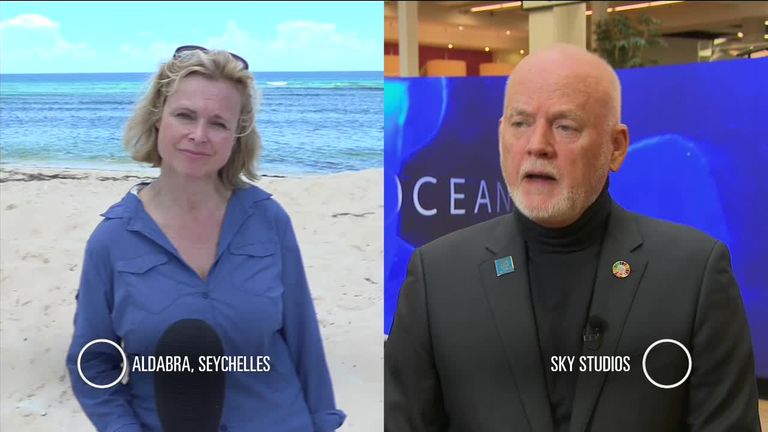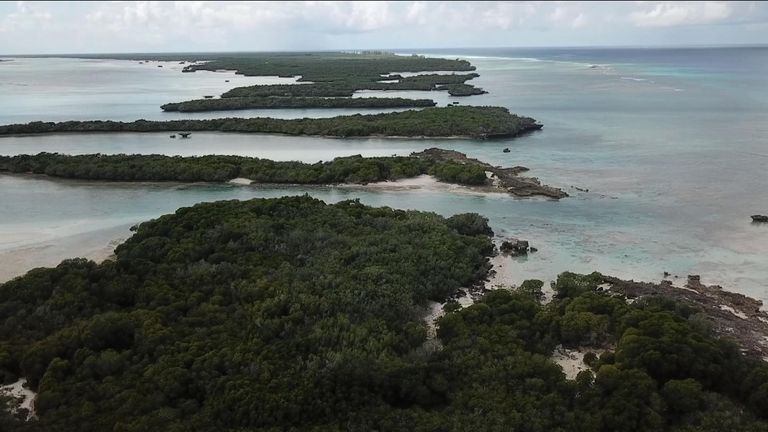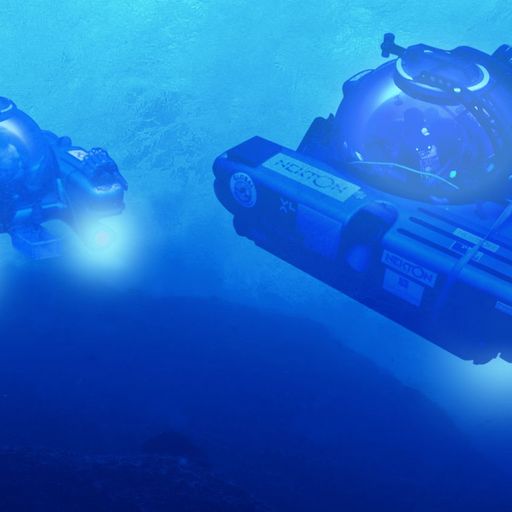Deep Ocean Live: Human life threatened by 'tragedy' facing coral reefs, UN official warns
On day two of Deep Ocean Live, Sky News broadcast from 250 metres below sea level to explore an area dubbed the "twilight zone".
Tuesday 19 March 2019 14:01, UK
Human life is threatened by the "tragedy" facing coral reefs, a top UN official has warned, as Sky News broadcast live from new depths of the Indian Ocean.
On day two of Deep Ocean Live, presenter Mark Austin and Nekton mission pilot Randy Holt descended to 250 metres below the sea's surface in a mini-submarine to explore an area dubbed the "twilight zone".
It came as Sky's Anna Botting - who delivered the world's first live TV news bulletin from under the sea on Monday - investigated the impact of plastic pollution on Aldabra, one of the Earth's most heavily protected coral atolls.
Scientists have estimated there could be 1,000 tonnes of plastic washed up on the island, known as the "Galapagos of the Indian Ocean" due to the sheer variety of life.
About 50,000 flip-flops are thought to have washed up on the remote coral atoll, 600 miles southwest of the Seychelles, along with plastic fishing ropes, nets, bottles and cigarette lighters.
It has already had a damaging effect on the environment there, with evidence of giant tortoises eating the plastic shoes.
Young green turtles born on Aldabra can also struggle to reach the sea because of plastic debris on the beaches.
Peter Thomson, the UN Secretary-General's special envoy for the ocean, said he "firmly believed" the ocean could be cleaned up over the next decade but warned climate change posed "a much more difficult challenge".
He told Sky News: "With ocean warming, you've got the tragedy of coral reefs.
"By the end of this century, we could be in a position where there are no longer any more coral reefs.
"For me, coming from Fiji, brought up on a coral coast, this is tragic beyond belief.
"It's akin to saying there will be no more forests on land. The coral reefs are the bunkers of bio-diversity for the oceans.
"To take them out of the picture could well be the taking out of the ocean eco-system, therefore taking out our global eco-system and therefore us."
Mr Thomson said plastic pollution had become a "plague" on the sea and the effect of climate change was "absolutely existential for us".
He told Sky News: "If we even care a little about the well-being of our children and grandchildren, this is probably the most important thing facing humanity at the moment - climate change and ocean change.
"There's no getting away from that unfortunately. The ocean is in deep trouble.
"We have to address our greenhouse gas emissions, what we're putting into our atmosphere, because that is what is really damaging our oceans' health."
Watch the highlights of day two of Deep Ocean Live on Sky News at 8pm. The third and final live programme in the series will be broadcast on Sky News on Wednesday at 8am.
Sky's Ocean Rescue campaign encourages people to reduce their single-use plastics. You can find out more about the campaign and how to get involved at www.skyoceanrescue.com.
